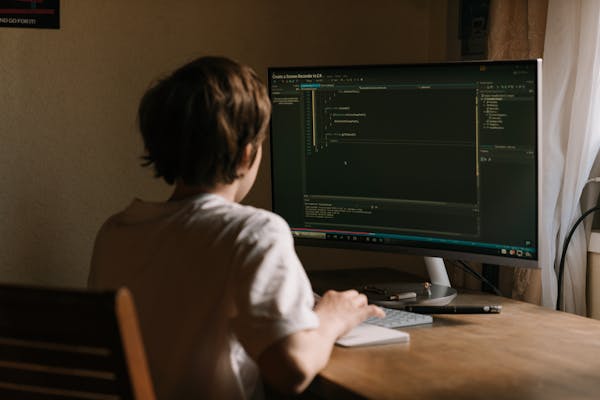The Dark Truth of Buyju: Exposing the Controversial Practices of a Well-Known Brand

The Truth About Buyju: Uncovering the Ugly Reality of a Popular Brand
The ed-tech company faces losses of more than 4.5k crore rupees. This is the way this company is doing then we summoned Byju's CEO and asked explanation from him. How is involved in these malpractices after that we will take further actions, Parents were lured, deceived, and hard-sold courses by Byju, A 23 years old boy who is working for a UK-based shipping firm, and was about to do something which could change his whole life?
He helps his friends were preparing for the CAT examination. And side by side gives exams himself. Exams happen and bang on. He scores a 100%ile, and to test his abilities, he gives exams again, and again 100%ile. And seeing this, instead of enrolling in IIM, he started helping those students, who wanted to go to IIM. He quits his job and starts maths workshops. And this was an instant success. There was a workshop where 20k students came to learn from him! And in no time, he started to become very popular, after which he started a company with his wife and students.

The company whose valuation crosses $22 billion in 2020. BYJU, whose valuation is $22 billion, is facing huge losses. The company faced just 231 crore rupees loss in 2020, next year, its losses increased to 4588 crore rupees. IPO got canceled. Investors are not giving funding, and more than 2.5k employees have been fired from the company. Why? Why is all this happening? What's happening in Byjus that nobody knows? And most importantly, what are those powerful business lessons, which we can learn and implement in our business? So, before we look at the failure, let's understand, how Byjus works.
Byjus is a Bangalore-based online tutoring company, which is registered by the name Think and Learn Pvt. ltd. Company's main objective is to provide online video lectures. to provide coaching to children for competitive and school-based exams. So, in very simple words, BYJU's K-12 focus on students between kindergarten to 12th class. And to deliver these video lectures, BYJU launches its app in 2015, which was an instant success. But there is a twist. And the twist is, BYJU conveys the message to all that, it is an educational company but it's not! BYJU is not an ed-tech company! Because if you observe very very carefully, you will get to know many such things which are hidden from you to date. Ahh, that's okay! But if BYJU isn't an ed-tech company, then what is it? So, what's the actual business of the company? So see, BYJU' is not in the business of selling education, rather they are in the business of selling HOPE. Today, most parents don't want to compromise on their child's education! They want to send their kids to the best school and best coaching institute, even if he has to take a loan for it! But the problem over here is, if a child doesn't get good marks, then parents start to believe, the problem is in the school or coaching institution. And these companies take advantage of it. If you want good marks for your kids, if you want a good career for him, then you need our application!

Chintu learned coding on Whitehat Jr. and made an app, To invest in his app, This ad of Chintu and his parents, is the best example to understand, that how the insecurities of innocent parents are taken advantage of. Our parents are expecting too much from us! If someone gives our parents hope that their hope can come true, then they are ready to give them huge sums of money! And BYJU takes advantage of this to sell its courses to parents.
BYJU's salesman goes to the parents of K-12 parents and tries to push their insecurities. After which kids are asked such questions, that they can't answer. And then they make the parents believe, that you need our application. And then comes the best part. Parents are given a tablet so that their kids can study, and along with that, a free trial for 15 days is also given. Now catch over here is, when the kid is taking the free trial on that tablet, during which, BYJU gets a lot of data about that kid. And using this data, they force those parents to buy the course after a 15-day trial. Somewhere some deficiency is shown inside the children, due to which parents believe that the deficiency is not inside our child but in his education, and we need to spend money there. By using data, forced marketing is done! And after that, parents are sold these courses.

There are a lot of cases where the salesman of BYJU sold courses to those parents, who can't afford them.
This leads to many parents not knowing that someone sold their kid something they don't need through a loan, and they don't have the money to pay for it. but the question is what's the problem with BYJUs? It doesn't matter, how the company is making money! Well, you need to see this! If you look very carefully, it makes most of the money from ed tech products. And about 320 crore rupees from course fees. This means, from the Aakash institute they acquired. But the actual problem is in this chart! This is the expense chart of BYJU. BYJU is spending most of the money on ads and employee benefit expenses.
This is the reason, the company is in a loss of 4588 crore rupees. And this is very very dangerous. But why? So now try to understand this very very carefully! The target market of BYJU is lower-middle-class and middle-class families. And there is a very big reason behind it. See, BYJU's courses range from 50k-1.5 lakhs. So, the thing over here is, those who belong to the poor class can neither afford BYJU's courses, nor they are so ambitious, to spend such huge money on courses. Now, the second category i.e. rich population, neither they are so insecure, and secondly, they have better options than BYJU's. So, they don't have any reasons to buy BYJU's courses. Then who is left? Middle-class and lower-middle-class people. And this is a very good target audience for BYJU. Why? Because of these three reasons.
No.1 - A lot of insecurities. In the majority of middle-class and lower-middle-class families, people are very insecure.
No. 2 - Hyper competitive mindset. See, no middle-class or lower-middle-class family wants to be poor! That is the reason, their mindset is so hyper-competitive. Third and most importantly, Very less options. Because they don't have a lot of options available, so they are left with very limited options. And this is perfect for BYJU. Because their salesman has to do just 3 things with parents, to sell courses worth rs. 50k-1.5 lakhs. Firstly, highlight more insecurities. For all the parents to whom BYJU's salesmen reach, their work is to increase insecurities. So that parents feel bad and worried. Secondly, fuel competitiveness. Because middle-class and lower-middle-class people are already competitive, they want to succeed, it's very easy to fuel competitiveness in them! By just making them feel, that if their kid didn't take it, then another kid will surpass your kid by taking it. Third and most importantly, we as humans, never make correct decisions, we always make convenient decisions. So in such a scenario, parents have already been made to feel insecure!
They have been made more competitive. Now, the only thing they have to do is, provide a convenient solution. And that is BYJU's courses. So it is super simple. Make parents feel insecure, increase competitiveness in themselves and their kids, and third, by giving them a simple solution, sell a course worth 50k-1.5 lakh rs. forcefully. But you know what, when something like this happens inside the ed-tech industry, these three major problems will come always!
No. 1 - Lack of personal touch. BYJU sells course worth between 50k-1.5 lakhs, which makes it pretty obvious, that their customers are not kids but their parents. Students, ideally don't earn money! So in such scenarios, students are the users of those products, but the buyer is their parents. Now try to understand the scenario using this example. So in this ed-tech world, Aman Dhattarwal and Physicswallah sell courses worth between 5k-10k. So, in this case, also, the buyers are parents, and kids' parents.
But the thing over here is, the influencer here is the kid. That kid goes to their parents and says, 'I want their course'. Why? Because they feel personally connected to Aman Dhattarwal and Alakh Pandey. Whereas on the other hand, BYJU sells course worth between 50k-1.5 lakhs, so, in this scenario also, the buyers are kids' parents, but the influencer is BYJU's BDA i.e. Business Development Associate, who is pushing the parents to sell the course. But the thing over here is, it's not that easy to sell a course between 50k-1.5l rupees. As a result of which, BDAs of BYJU practice fake marketing. And in this scenario, if the kid isn't involved, it becomes more difficult to sell the course. And kids aren't able to connect with BYJU because it's a company. So, the kid here is a user, not an influencer. As a result of which, BYJU has to deal with a major problem which is, the low possibility of recurring revenue. Look at the prices of these courses very carefully! 35k rupees to teach a student in the 4th class. And this is nothing. If we talk about 11th-12th class students, look at this! There is no course below ₹ 100000 for 11th and 12th-class children! Which makes it super difficult to sell it again and again! You can't sell it again and again! You can sell a course worth between 5k-10k again and again! But selling a course worth between 50k-1.5l, again and again, is very difficult.

But if look at it from an organizational perspective, the company wants revenue growth every year. Due to this BYJU has to face this 3rd problem. Which is toxic work culture. When the company's recurring revenue model is not set, there is no way left for the company to force its salesmen to forcefully sell the course to the parents! But, do you know, due to this thing, how it affects those families? The family who were deliberately made to invest their life savings in an online course by BYJU's sales executive with false promises For what? Just to achieve their sales target! Just because they were scared if they don't sell courses, then they will lose their job! See, there is absolutely nothing wrong with selling online courses. Even I've learned many things from online courses. But showing false dreams and misguiding someone, selling courses by manipulating someone, is very wrong.

It's completely unethical! Education is a way to move forward in life! But the parents who were sold courses forcefully, are paying EMIs for that, and are struggling Because someone has sold them such a thing, that neither they can afford nor their children need that thing. Many parents were sold by BYJU's executive course and went away. Those who come from such a lower background, that they are not able to raise their voice against it. Even if they complain, then to whom! Byju's is not what it sounds like! [First, they say that we'll take this amount per month] [Financier is saying that you'll have to pay this amount] Year 2021, revenue - 2428 crore, loss - 4588 crore. It's more than 10x of cumulative loss from 2014-2020. In fact, in 2021, BYJU's spent 2251 crores just on marketing. Which is 150x of 2020 expenses. And this is how it is backfiring BYJUs. See, venture capitalists are not in the game of business. They are in the game of entering and exiting the businesses.

I repeat, venture capitalists are not in the game of business. They are in the game of entering and exiting the businesses. And because of this, valuation is the biggest wealth creator for any venture capitalist, not the profits of the company! So now, please pay very close attention to this! BYJU's in an ed-tech company! And in the year 2020, COVID-19 came. Due to this, all people shifted to online education! As a result of which, BYJU's revenue started increasing! When revenue increased, its valuation started increasing. Due to this, a lot of venture capitalists started investing money in it and started buying stakes. Funding came and with this, BYJU's started doing these three things.
No. 1 - Hiring more people!
No. 2 - Heavy expenditure on ads and sponsorships!
No. 3 - Acquisitions and aggressive expansion!

As a result of which, BYJU's revenue was 1366 cr. in 2019, which increased to 2703 cr. rupees in 2020. And its valuation was $5.7 billion in 2019, which reached $18 billion in 2020. So technically, the VCs who invested money during this period tripled their money! And during this process, because its valuation was increasing very speedily, VCs wanted to put money into the business and take a very good exit. And all this while, COVID started decreasing after some time. Things started to get better, and people started shifting from online to offline education! And this is how it impacted BYJU. As Covid subsided, BYJU's revenue also started decreasing. And the company's losses were increasing. Moreover, because revenue was decreasing, no investor was pouring money into the company! So, investors also started decreasing! As a result of which, the valuation dropped! And the thing is, there is only one way to attract money for any startup! And that is valuation growth! And it happens through these two things.
No. 1 - Increasing revenue. Either your revenue is increasing.
No. 2 - Profitable! Or you've made the company profitable! The problem over here is, there are a lot of gaps in operating models. As a result of which, neither company's revenue is increasing, because the salesman can't push people to any limit.
No. 3 - The company can't be profitable! But the biggest problem is, with the existing operating models, it is very difficult for BYJUs to be profitable! Because in no way, it is possible! In a country like India, sell a course worth between 50k-1.5l rs. without lying, especially to those parents who can't afford this money! And for a long period, the company didn't submit its financials. Stating, it has been delayed by the auditor i.e. Deloitte. But in reality, Deloitte asked two things from BYJU. No.1 - Change in the manner of revenue recognition! For example, BYJU sells a course worth 20k rs. to someone! So, the duration of this course is 2 years. So technically, its revenue for a year becomes 10k rupees. But BYJU's accounted for it as 20k rupees. The second requirement, change the accounting of interest paid by BYJU to its lending partners, to analyze financials properly! And because of this, today investors don't want to invest in BYJUs. Moreover, because BYJU's revenue is highly dependent on its sales force, so neither sales are happening, and no company is getting investment. Those who were early investors made a lot of money! Even the founders made a lot of money! Even the employees of BYJU's also made money! But who has lost in all this?
Customers, especially those who couldn't afford BYJU's courses! Those people have been tempted to buy such a thing, which has taken them many years back in life.
Uncovering Buyju's Dark Side: The Truth About a Controversial Company
The Dark Truth of Buyju: Exposing the Controversial Practices of a Well-Known Brand
Buyju's Hidden Agenda: The Dark Truth Behind the Façade







